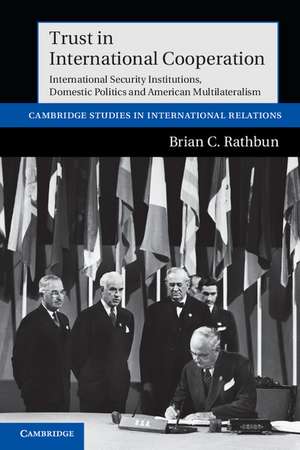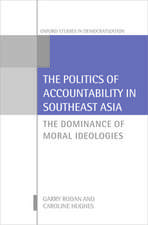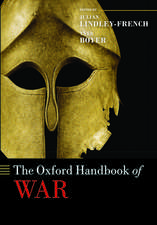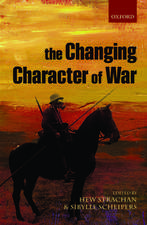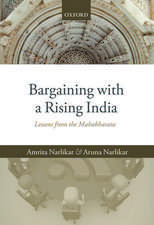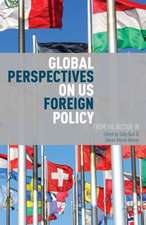Trust in International Cooperation: International Security Institutions, Domestic Politics and American Multilateralism: Cambridge Studies in International Relations, cartea 121
Autor Brian C. Rathbunen Limba Engleză Paperback – 30 noi 2011
| Toate formatele și edițiile | Preț | Express |
|---|---|---|
| Paperback (1) | 207.35 lei 6-8 săpt. | |
| Cambridge University Press – 30 noi 2011 | 207.35 lei 6-8 săpt. | |
| Hardback (1) | 639.24 lei 6-8 săpt. | |
| Cambridge University Press – 30 noi 2011 | 639.24 lei 6-8 săpt. |
Din seria Cambridge Studies in International Relations
-
 Preț: 198.90 lei
Preț: 198.90 lei -
 Preț: 232.37 lei
Preț: 232.37 lei -
 Preț: 237.58 lei
Preț: 237.58 lei -
 Preț: 210.70 lei
Preț: 210.70 lei -
 Preț: 190.01 lei
Preț: 190.01 lei -
 Preț: 200.87 lei
Preț: 200.87 lei - 8%
 Preț: 401.24 lei
Preț: 401.24 lei -
 Preț: 229.56 lei
Preț: 229.56 lei -
 Preț: 265.70 lei
Preț: 265.70 lei -
 Preț: 200.09 lei
Preț: 200.09 lei -
 Preț: 207.82 lei
Preț: 207.82 lei -
 Preț: 158.77 lei
Preț: 158.77 lei -
 Preț: 162.49 lei
Preț: 162.49 lei -
 Preț: 231.47 lei
Preț: 231.47 lei - 11%
 Preț: 584.77 lei
Preț: 584.77 lei -
 Preț: 241.77 lei
Preț: 241.77 lei -
 Preț: 287.87 lei
Preț: 287.87 lei -
 Preț: 209.13 lei
Preț: 209.13 lei -
 Preț: 299.23 lei
Preț: 299.23 lei -
 Preț: 286.13 lei
Preț: 286.13 lei -
 Preț: 287.87 lei
Preț: 287.87 lei - 11%
 Preț: 641.67 lei
Preț: 641.67 lei - 11%
 Preț: 585.78 lei
Preț: 585.78 lei - 14%
 Preț: 843.23 lei
Preț: 843.23 lei -
 Preț: 303.80 lei
Preț: 303.80 lei -
 Preț: 200.79 lei
Preț: 200.79 lei -
 Preț: 284.78 lei
Preț: 284.78 lei -
 Preț: 279.76 lei
Preț: 279.76 lei -
 Preț: 285.75 lei
Preț: 285.75 lei -
 Preț: 324.24 lei
Preț: 324.24 lei -
 Preț: 290.16 lei
Preț: 290.16 lei -
 Preț: 291.69 lei
Preț: 291.69 lei -
 Preț: 392.52 lei
Preț: 392.52 lei -
 Preț: 315.99 lei
Preț: 315.99 lei
Preț: 207.35 lei
Nou
Puncte Express: 311
Preț estimativ în valută:
39.69€ • 43.13$ • 33.36£
39.69€ • 43.13$ • 33.36£
Carte tipărită la comandă
Livrare economică 21 aprilie-05 mai
Preluare comenzi: 021 569.72.76
Specificații
ISBN-13: 9781107603769
ISBN-10: 1107603765
Pagini: 274
Dimensiuni: 154 x 228 x 13 mm
Greutate: 0.45 kg
Editura: Cambridge University Press
Colecția Cambridge University Press
Seria Cambridge Studies in International Relations
Locul publicării:New York, United States
ISBN-10: 1107603765
Pagini: 274
Dimensiuni: 154 x 228 x 13 mm
Greutate: 0.45 kg
Editura: Cambridge University Press
Colecția Cambridge University Press
Seria Cambridge Studies in International Relations
Locul publicării:New York, United States
Cuprins
1. Circles of trust: reciprocity, community and multilateralism; 2. Anarchical social capital: a social psychological theory of trust, international cooperation and institutional design; 3. The open circle: the failure of the League of Nations; 4. Squaring the circle: the birth of the United Nations; 5. Closing the circle: the negotiation of the North Atlantic Treaty; 6. Coming full circle: fear, terrorism and the future of American multilateralism.
Recenzii
'The role for 'trust' in world politics is often denied, taken for granted, or simply overlooked. This book asks excellent questions about how, when, and why states trust each other - and when they don't. Paying close attention to both domestic politics and international relations, Rathbun covers the most important cases of negotiating world order in the [twentieth] century and shows the important contribution of trust in all of them, often in counter-intuitive ways. It opens a door between history, psychology, and foreign policy that should never have been closed in the first place.' Ian Hurd, Associate Professor, Department of Political Science, Northwestern University
'Rathbun makes a compelling case for the importance of generalized trust in international relations. He shows how fundamental beliefs about whether other people tend to be trustworthy underlie attitudes towards international institutions. The book is essential reading for anyone seeking to understand the psychological foundations of current foreign policy debates.' Andrew Kydd, Associate Professor of Political Science, University of Wisconsin
'In this important new work, Rathbun offers a fascinating account of the origins and logic of multilateral security cooperation in the 20th century. It will stimulate new debates about international cooperation and invigorate our historical understanding of the origins of American-era multilateralism.' G. John Ikenberry, Albert G. Milbank Professor of Politics and International Affairs, Princeton University
'How trust explains not only people's attitudes toward multilateralism but the design of international organizations is the subject of this highly original and timely book. It offers an important challenge to rationalist models of institutional creation, and is a must read for anyone interested in questions of world order and global governance.' Deborah Welch Larson, Professor of Political Science, University of California, Los Angeles
'Rathbun makes a compelling case for the importance of generalized trust in international relations. He shows how fundamental beliefs about whether other people tend to be trustworthy underlie attitudes towards international institutions. The book is essential reading for anyone seeking to understand the psychological foundations of current foreign policy debates.' Andrew Kydd, Associate Professor of Political Science, University of Wisconsin
'In this important new work, Rathbun offers a fascinating account of the origins and logic of multilateral security cooperation in the 20th century. It will stimulate new debates about international cooperation and invigorate our historical understanding of the origins of American-era multilateralism.' G. John Ikenberry, Albert G. Milbank Professor of Politics and International Affairs, Princeton University
'How trust explains not only people's attitudes toward multilateralism but the design of international organizations is the subject of this highly original and timely book. It offers an important challenge to rationalist models of institutional creation, and is a must read for anyone interested in questions of world order and global governance.' Deborah Welch Larson, Professor of Political Science, University of California, Los Angeles
Notă biografică
Descriere
Challenges conventional wisdoms concerning the role of trust in the origins of international cooperation and bipartisanship in US foreign policy.
